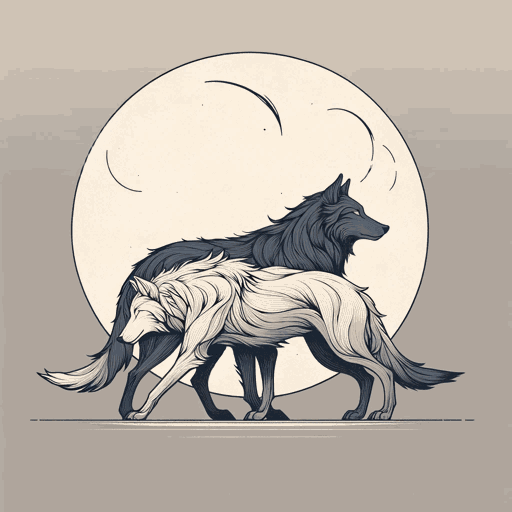72 pages • 2 hours read
Rosanne Parry, Illustr. Mónica ArmiñoA Wolf Called Wander
Fiction | Novel | Middle Grade | Published in 2019A modern alternative to SparkNotes and CliffsNotes, SuperSummary offers high-quality Study Guides with detailed chapter summaries and analysis of major themes, characters, and more. For select classroom titles, we also provide Teaching Guides with discussion and quiz questions to prompt student engagement.
Themes
Identity within the Context of the Family
For human beings, a person’s role within the family and the level of participation in familial relationships are both highly individualistic and entirely specific to each person’s preferences and inclinations. Wolves, by contrast, are pack animals; their ability to rely upon those who make up their family unit is integral to ensuring their survival. Wolves do not possess the individualistic and often treacherous traits that can drive human individuals to prioritize themselves and their personal objectives over the good of the group.
Lacking the complicated, fallible, and often disappointing interpersonal tendencies of humans, the bond of a wolf pack is a much purer and more cooperative collective, and this dynamic is vividly depicted in the early chapters of A Wolf Called Wander. All the wolves in Wander’s pack are collaborators, and as the pups mature, they grow into an understanding of their own strengths and those of their peers, subordinates, and mates, learning to appreciate the vital role that each wolf must play in order to ensure the collective success of the pack as a whole. Accordingly, all the wolves are motivated by the bonds that they form with one another and by the survival instincts that intrinsically govern their behavioral patterns.

